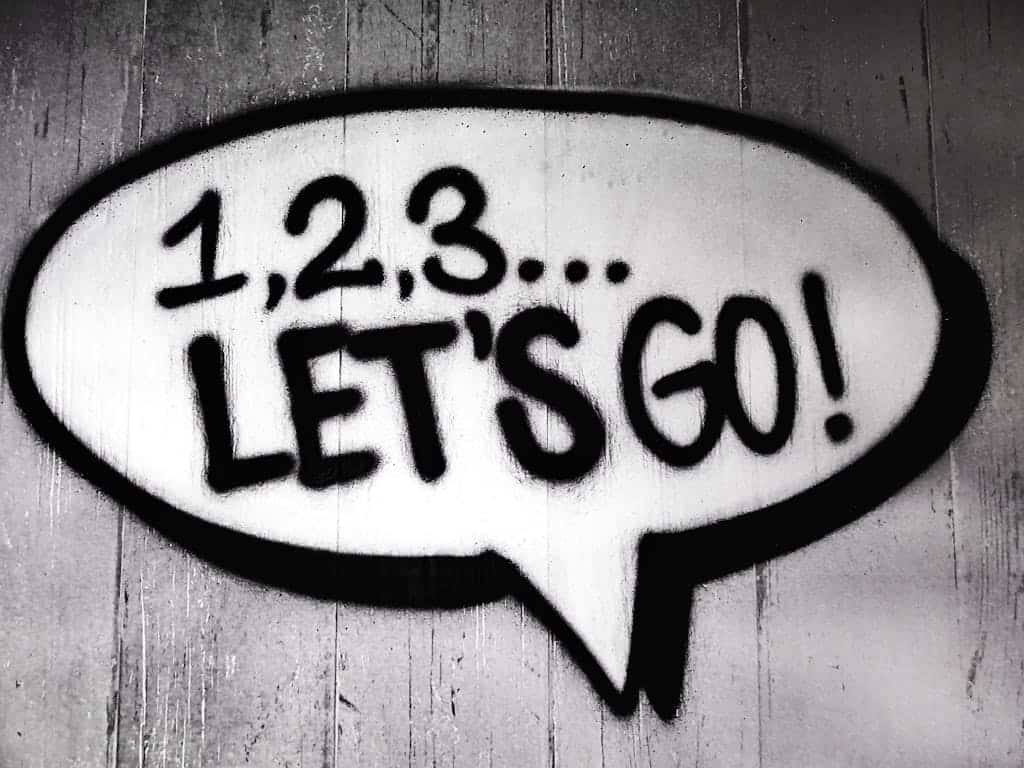Discover the transformative power of “The Power of One More” by Ed Mylett! This compelling book invites readers to push beyond their limits and achieve greatness one step at a time. In this article, we’ll provide you with a comprehensive summary and actionable steps to implement Mylett’s strategies into your daily life. Did you know that small, consistent actions can lead to monumental changes? Let’s dive in and uncover the secrets to optimizing your mindset and habits in 2024 and beyond!

The Core Philosophy: Understanding “One More”
At the heart of Ed Mylett’s book “The Power of One More” lies a simple yet transformative philosophy: the idea of pushing oneself to do just one more than what you initially set out to do. Whether it’s one more call, one more rep, or one more act of kindness, the concept encourages incremental efforts that compound over time, leading to monumental changes in life and business.
This philosophy is rooted in the belief that success is not an overnight achievement but a result of consistent, small actions performed with dedication. By committing to “one more,” you build resilience and perseverance, qualities that are essential for overcoming obstacles and achieving long-term goals. The principle highlights the importance of marginal gains, underscoring that even the smallest extra effort counts and adds up in significant ways.
Mylett illustrates this with personal anecdotes and practical examples. For instance, he talks about how he transformed his fitness routine by performing one extra set of exercises each day. This not only improved his physical health but also reinforced his mental toughness. Similarly, in his professional life, making just one more sales call or spending an extra minute preparing for a meeting often made the difference between closing a deal and missing an opportunity.
Adopting the “one more” mindset requires a shift in perspective. Instead of viewing tasks as chores, you begin to see them as opportunities for growth and self-improvement. This approach encourages you to constantly challenge yourself and step out of your comfort zone, fostering a proactive mindset. The power of “one more” lies in its simplicity—it’s an easily implementable strategy that doesn’t require dramatic changes but yields profound results over time.
Moreover, this philosophy promotes a sense of accomplishment and momentum. Each “one more” action builds on the previous one, creating a cumulative effect that boosts confidence and motivation. The satisfaction derived from these small wins propels you forward, encouraging you to tackle bigger challenges with increased vigor.
“The Power of One More” also teaches the importance of accountability. By committing to one more effort, you hold yourself responsible for your progress. This accountability fosters discipline and helps develop a strong work ethic, which are critical components for success. Additionally, sharing this philosophy with peers and creating a collective commitment to “one more” can create a supportive environment that encourages mutual growth and achievement.
In summary, the core philosophy of “one more” is a powerful and practical approach to personal and professional development. By embracing this mindset, you can unlock your potential, achieve your goals, and lead a more fulfilling life. It’s about making that conscious decision every day to go just a little bit further, and in doing so, transforming your life one step at a time.
Mindset Mastery: Shifting Your Mental Paradigms
When I first delved into “The Power of One More” by Ed Mylett, the concept of shifting mental paradigms resonated deeply with me. You see, our mindset shapes everything we do, from the smallest daily habits to the grandest life goals. One of the most transformative shifts for me was moving from a fixed mindset to a growth mindset. Just like Carol Dweck explained in her research, people with a fixed mindset believe their abilities are static, while those with a growth mindset see them as malleable.
I remember back in the day, I used to think I was just “bad” at certain things, like public speaking. I’d get so anxious even thinking about standing in front of a crowd! But when I adopted the growth mindset, it was like a whole new world opened up. I started seeing challenges as opportunities to grow rather than threats to my self-esteem. Instead of shying away from public speaking, I signed up for a local Toastmasters club (which, let me tell you, was terrifying at first). Yet, each time I spoke, I got a little better, a little more confident. It was all about pushing that “one more” effort, just like Mylett suggests.
A huge part of shifting your paradigms involves reprogramming your belief systems. Mylett talks about identifying and breaking down limiting beliefs—which can be a brutal process but so rewarding. For me, one of those limiting beliefs was that success was reserved for “other people”—folks who were smarter or had more resources. But the more I dug into personal development and challenged those beliefs, the clearer it became: success is a mindset before it’s a reality.
One technique that helped immensely was visualization. This isn’t just woo-woo talk; there’s solid science behind it. Athletes often use visualization to enhance performance. I’d close my eyes and vividly imagine my desired outcomes, whether it was acing a presentation or achieving a personal goal. Over time, these mental rehearsals helped rewire my brain for success.
Another key lesson from Mylett’s book is building mental resilience. This is where I really faced some trials. There were times when I felt like I just couldn’t give that “one more.” I clearly remember a particularly tough project at work, where everything seemed to be going wrong. The deadline was looming, and my team was burnt out. Instead of throwing in the towel, I decided to dig deep and push through that extra mile. I stayed late, focused on what could be done rather than what had gone wrong, and encouraged my team to do the same. In the end, we not only met the deadline but delivered the project successfully. That experience taught me that resilience isn’t about avoiding failure; it’s about bouncing back stronger each time.
Now, let’s talk practical tips. If you’re looking to shift your mindset, start by surrounding yourself with positive influences. Engage with books, people, podcasts, anything that challenges your current way of thinking and introduces new perspectives. And don’t be afraid to make mistakes—each one is a lesson in disguise. Create small, actionable steps to practice the “one more” philosophy. If you’re working out, do one more rep. If you’re reading, read one more page. This approach helps in building both physical and mental endurance.
Lastly, embrace the power of affirmations. I know, it might sound cliché, but they work. Craft affirmations that align with the mindset you want to develop and repeat them daily. Over time, they become a part of your subconscious, guiding your thoughts and actions.
In summary, shifting your mental paradigms is about embracing the journey to a growth mindset, reprogramming limiting beliefs, and building mental resilience. Remember, every small step you take has the potential to bring monumental changes in your life. So, what’s your next “one more” going to be?
Developing Consistent Habits for Success
One of the cornerstones of “The Power of One More” is habit development. Ed Mylett emphasizes that consistent habits are the building blocks of success. By cultivating positive habits, you create a structure that supports long-term achievement and personal growth.
Mylett advocates for starting with small, manageable changes. The idea is to implement habits that are sustainable and can be easily integrated into your daily routine. For example, if your goal is to improve your physical fitness, rather than committing to a rigorous workout plan right off the bat, you might start with a daily 10-minute exercise routine. The key is consistency. Over time, these modest habits compound, leading to significant improvements.
Another crucial aspect is to align your habits with your goals and values. When your daily actions reflect what you aspire to achieve, you create a reinforcing loop that keeps you motivated and focused. For instance, if you value continuous learning, make it a habit to read for 15 minutes every day. This small, consistent action can gradually expand your knowledge and skill set, aligning with your long-term personal and professional objectives.
Mylett also underscores the importance of accountability in habit development. Sharing your goals with someone you trust or joining a community with similar aspirations can provide the support and encouragement needed to stick with your new habits. Accountability partners can help you stay on track, offer constructive feedback, and celebrate your successes, making the journey more enjoyable and less daunting.
In developing consistent habits, Mylett stresses the significance of environment. He suggests creating an environment that is conducive to your new habits. This could mean organizing your workspace to minimize distractions, setting reminders for habit-related tasks, or even associating with individuals who inspire and challenge you to grow. An environment that supports your goals can make it easier to adopt and maintain positive habits.
Moreover, Mylett introduces the concept of habit stacking—a strategy popularized by James Clear in his book “Atomic Habits.” This technique involves linking a new habit to an existing one. For instance, if you want to start meditating daily, tie it to an established routine like brushing your teeth. This linkage leverages your existing habits as cues for the new ones, making them easier to remember and integrate into your day.
Finally, Mylett encourages celebrating small wins. Acknowledging and rewarding yourself for sticking to your habits reinforces positive behavior and boosts your motivation. Whether it’s treating yourself to a small reward or taking a moment to appreciate your progress, these celebrations can help sustain your commitment and make the process more gratifying.
Goal Setting and Achievement: Turning Visions into Reality
Setting clear and achievable goals is paramount to success. “The Power of One More” emphasizes not just the end destination, but the journey in meticulously breaking down larger objectives into manageable, actionable steps. By focusing on small, incremental improvements, individuals can make steady progress toward their goals. This approach minimizes overwhelm and makes the overall objective feel more attainable.
Ed Mylett advocates for the use of visualization techniques as a powerful tool for goal attainment. He discusses how picturing your achievements vividly helps to solidify your commitment and keep you motivated. Visualization acts almost like a mental rehearsal, preparing you for the challenges ahead and keeping your focus sharp.
Moreover, maintaining a positive mindset throughout the goal-setting process is crucial. Mylett emphasizes the significance of seeing setbacks as temporary and learning opportunities rather than failures. This resilience building ensures that when obstacles arise, you’re prepared to tackle them head-on rather than getting discouraged.
Another key point is the importance of regular review and adjustments. Goals are not static; they should evolve with your aspirations and circumstances. Ed suggests routine check-ins to assess your progress and make necessary adjustments. This keeps your goals aligned with your current reality and ensures you’re always moving forward.
By consistently working “one more” step or taking “one more” action in pursuit of your goals, individuals often find themselves achieving outcomes they once thought impossible. This philosophy underscores not just the value of effort, but the exponential growth that comes from persistent, incremental improvement.
Building Meaningful Relationships
Building and maintaining meaningful relationships is a cornerstone of a fulfilling life. According to “The Power of One More,” investing time and effort into nurturing connections with others can lead to profound personal and professional growth.
Mylett highlights the importance of authenticity and genuine interest in the well-being of others. In a world often dominated by superficial interactions, being truly present and engaged with those around you can set you apart. This begins with practicing active listening, which means fully concentrating, understanding, and responding thoughtfully to what the other person is saying. Through active listening and showing empathy, individuals can foster deeper and more meaningful connections.
The book also discusses the concept of adding value to others’ lives without expecting anything in return. Acts of kindness, support, and generosity help in creating a strong foundation of trust and loyalty. When people feel valued and appreciated, it naturally cultivates a network of supportive and lasting relationships.
Strong relationships provide emotional support, which is invaluable when pursuing ambitious goals or navigating life’s inevitable challenges. Additionally, these relationships can be instrumental in opening doors to new opportunities and collaborations. By building a robust network, you can leverage collective knowledge, skills, and resources, thereby accelerating your journey toward success.
Ultimately, the quality of your relationships greatly influences your overall well-being and success. Mylett’s insights encourage readers to approach relationship-building with intentionality, recognizing that each meaningful connection contributes to a richer, more fulfilled life.

Health and Wellness: The Foundation of Performance
In “The Power of One More,” Ed Mylett emphasizes that optimal health and wellness are critical components for achieving peak performance in any area of life. Physical fitness, nutrition, and mental health form the triad that underpins overall well-being and success.
Mylett stresses that physical fitness isn’t merely about aesthetics; it’s about energy, stamina, and resilience. Incorporating regular exercise into your routine can dramatically improve your focus, mood, and productivity. He advocates for integrating both strength training and cardiovascular activities, promoting a balanced approach that enhances both physical strength and endurance.
Nutrition is another cornerstone Mylett highlights. He encourages mindful eating, including a diet rich in whole foods like fruits, vegetables, lean proteins, and healthy fats. Proper nutrition fuels the body and mind, enabling you to perform at your best. Hydration is equally critical, as staying adequately hydrated can significantly impact your cognitive function and energy levels.
Mental health is the third pillar discussed by Mylett. Maintaining a positive mindset, practicing mindfulness, and managing stress are essential for sustaining high performance. Techniques such as meditation, deep-breathing exercises, and engaging in hobbies you enjoy can help keep stress levels in check and improve overall mental clarity.
By prioritizing health and wellness, you lay a strong foundation for achieving your goals. A healthy body and mind enable you to seize opportunities, overcome challenges, and maintain the energy needed to pursue your aspirations relentlessly. Investing in your well-being is not just a step towards a better life; it’s an essential strategy for sustainable success.
Implementation Guide: Taking Action
Diving into “The Power of One More,” Ed Mylett provides an actionable framework to help individuals turn their goals into reality. The core philosophy here is about taking consistent, focused steps that accumulate into significant progress.
One of the key strategies Mylett recommends is breaking down large goals into smaller, manageable tasks. This approach helps mitigate feelings of being overwhelmed and enables you to celebrate small wins along the way, which bolsters motivation and momentum. Prioritizing tasks based on their impact and urgency ensures that your efforts are aligned with your most important objectives.
Setting up a daily routine is another critical element Mylett discusses. By establishing a structured plan that includes time for work, exercise, relaxation, and personal development, you create a balanced and sustainable approach to achieving your goals. Consistency is the secret ingredient here—small, daily actions compound over time to produce extraordinary results.
Accountability is also a vital aspect of taking action. Whether it’s through a mentor, a coach, or a peer group, having someone to support you and hold you accountable can dramatically increase your chances of success. Regular check-ins and feedback help you stay on track and make necessary adjustments.
Utilizing tools and technology to stay organized and focused can further enhance your implementation efforts. From project management apps to health trackers, leveraging technology can streamline your routines and help you maintain clarity on your progress.
By following this implementation guide, you’re setting yourself up for sustained success. Every action, no matter how small, brings you one step closer to your ultimate goal.

The Power of Reflection and Continuous Improvement
Ed Mylett underscores the importance of reflection and continuous improvement as vital components of sustained success. Practicing regular self-reflection allows you to assess your progress, recognize your achievements, and identify areas for growth.
A simple yet effective method Mylett recommends is maintaining a journal. By writing down your thoughts, goals, successes, and challenges, you create a tangible record of your journey. This practice not only helps in clarifying your thoughts but also offers insights that pave the way for continuous improvement.
Setting aside time for periodic reviews is another powerful strategy. Whether it’s weekly, monthly, or quarterly, these review sessions allow you to evaluate what’s working and what isn’t. Adjusting your strategies based on these assessments ensures that you stay aligned with your goals and are continuously optimizing your efforts.
Another key aspect of continuous improvement is seeking feedback from others. Constructive feedback from mentors, peers, or even through self-assessment can provide new perspectives and ideas for enhancing your performance.
Additionally, embracing a growth mindset is crucial. Viewing challenges as opportunities to learn and grow rather than as obstacles to success fosters resilience and adaptability. This mindset encourages you to continually seek knowledge, skills, and experiences that elevate your capabilities.
Incorporating reflection and continuous improvement into your routine ensures that you’re not just moving forward but doing so in a way that’s increasingly effective and aligned with your evolving goals. This habit of perpetual growth is what transforms great achievements into lasting success.
Personal Story: Embracing “One More” for Life Success
Reading “The Power of One More” has profoundly impacted my mindset and daily habits. Since purchasing the book, I’ve read it three times, and each read has offered fresh insights that I’ve integrated into my life. The philosophy of doing “one more” has become a guiding principle that permeates every aspect of my routine.
In the realm of physical fitness, applying the “one more” concept has meant pushing myself to enhance my performance. I now consistently do one more rep during my workouts, which has noticeably improved my strength and stamina. Running an extra lap has become a challenge I enjoy conquering, and it serves as a reminder of my resilience and commitment.
This mindset shift extends beyond physical activities. In my personal relationships, I’ve found that small acts of love and kindness truly matter. For instance, giving my wife one more bedtime kiss has deepened our bond and serves as a daily reminder of our connection and affection.
Even my approach to reading has evolved. Instead of closing a book after reaching a predefined goal, I now read one more page, savoring the additional knowledge and perspective gained. This simple action has made my reading sessions more enriching and fulfilling.
Professionally, the idea of doing one more has significantly influenced my work. Adding one more detail to my blog posts ensures they are comprehensive and valuable to my readers. This extra effort often makes a noticeable difference in the quality and impact of my content.
Moreover, setting one more personal development goal keeps me motivated and continuously striving for growth. Whether it’s mastering a new skill, attending a workshop, or starting a new project, these additional goals have broadened my horizons and enriched my life.
Through these practices, the lessons from “The Power of One More” aren’t just strategies to implement but have become a way of life that naturally elevates my performance and happiness. Embracing the “one more” philosophy has instilled a mindset of continuous improvement, resilience, and an unwavering pursuit of excellence.
Conclusion
In conclusion, “The Power of One More” by Ed Mylett offers profound insights into achieving success through incremental actions. By implementing the strategies outlined in this article, you can elevate your personal and professional life in 2024 and beyond. Remember, transformation is a journey, and every small step counts! Start today and witness the power of one more in your life.






One Comment
Comments are closed.